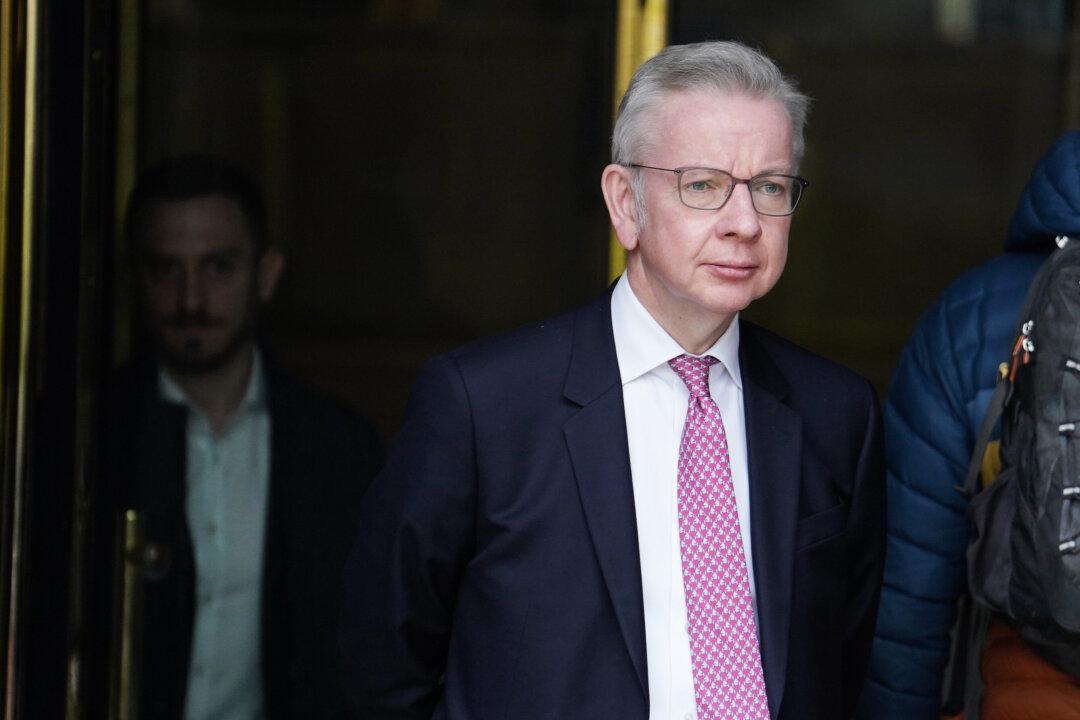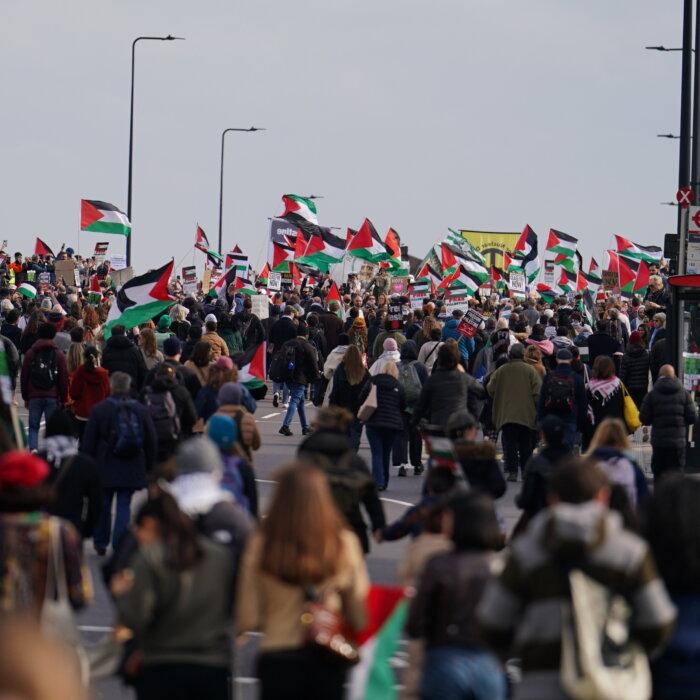Michael Gove unveiled the government’s new definition of extremism on Thursday in response to “increased extremist threat” amid the Israel–Hamas war.
The minister said the new definition is “clear and precise,” and will ensure the government doesn’t “inadvertently provide a platform to those setting out to subvert democracy and deny other people’s fundamental rights.”
Warning of the threat of extremism, Mr. Gove said extreme right-wing and Islamist extremists are both seeking to “separate Muslims from the rest of society and create division within Muslim communities ... radicalise individuals, deny people their full rights, suppress freedom of expression, incite hatred, and undermine our democratic institutions.”
The non-statutory definition applies to the operation of government and has no effect on existing criminal law, the government said, but Mr. Gove also said it would “strengthen vital frontline counter radicalisation work.”
However, critics have warned that the new definition could have “a chilling effect on free speech.”
Government: ‘Narrower and More Precise’
The updated definition says extremism is “the promotion or advancement of an ideology based on violence, hatred, or intolerance” that aims to “negate or destroy the fundamental rights and freedoms of others; or undermine, overturn or replace the UK’s system of liberal parliamentary democracy and democratic rights.”Intentionally creating a permissive environment for others to achieve these results is also characterised as extremism.
The government said the new definition is “narrower and more precise” than the previous one and “helps clearly articulate how extremism is evidenced through the public behaviour.”
It’s also “the first in a series of steps to promote social cohesion, democratic resilience, and to counter extremism and religious hatred,” said the Department for Levelling Up, Housing, and Communities.
Organisations to Be Assessed
The communities secretary listed five organisations which he said the government will assess against the new definition, including the British Movement and Patriotic Alternative.Mr. Gove stated that the groups have been targeted because they “promote neo-Nazi ideology, argue for forced repatriation, a white ethno state, and [target] minority groups for intimidation.”
He also said the government will assess the Muslim Association of Britain (MAB), CAGE, and Muslim Engagement and Development (MEND).
He also said Islamism is “a totalitarian ideology” and should never be confused with Islam, which he said is “a religion of peace.”
According to Mr. Gove, if a decision is made to list an organisation as extremist, the government will publish the evidence that led to the conclusion, and the only way an organisation can challenge the categorisation is to seek a judicial review.
Reacting to Mr. Gove’s new definition, MAB said it “represents nothing more than political posturing, a cynical manoeuvre aimed at appeasing the hard-right base of the Conservative Party,” and accused ministers of trying to win votes by “targeting mainstream British Muslim organisations.”
MEND labelled the new definition “a blatant attack on civil liberties and free speech,” and CAGE accused the government of “inciting and exploiting fears against Muslims to build an authoritarian and repressive infrastructure.”
No Man’s Land
The updated definition comes amid strained tensions in the aftermath of the Hamas terror attack on Oct. 7, 2023.Police and NGOs have also received an increased amount of both anti-Semitic and anti-Muslim allegations.
However, Robert Jenrick, former immigration minister, said the new definition “lands in no man’s land” because it neither goes “far enough to tackle the real extremists” nor does “enough to protect the non-extremists.”
Conservative MP Miriam Cates also said she’s concerned the definition risks “criminalising, or at the very least chilling the speech of people who have perfectly legitimate harmless views,” suggesting gender-critical feminists who call for the repeal of the Gender Recognition Act could be labelled extremists.
Mr. Gove responded by saying the new definition is “more narrow, more precise, and more rigorous,” leading to more effective protection of free speech.
He also argued that the definition won’t lead to a ban of anything. “It is simply about saying which organisations government should and should not engage with,” he said.
George Galloway, the new Workers Party MP for Rochdale, dismissed the government’s assertion that the definition only affects government engagement with organisations, saying: “It’s not good enough to say that it doesn’t seek to ban or jail anyone. You try getting a bank account once you’ve been branded by Michael Gove as an extremist.”







